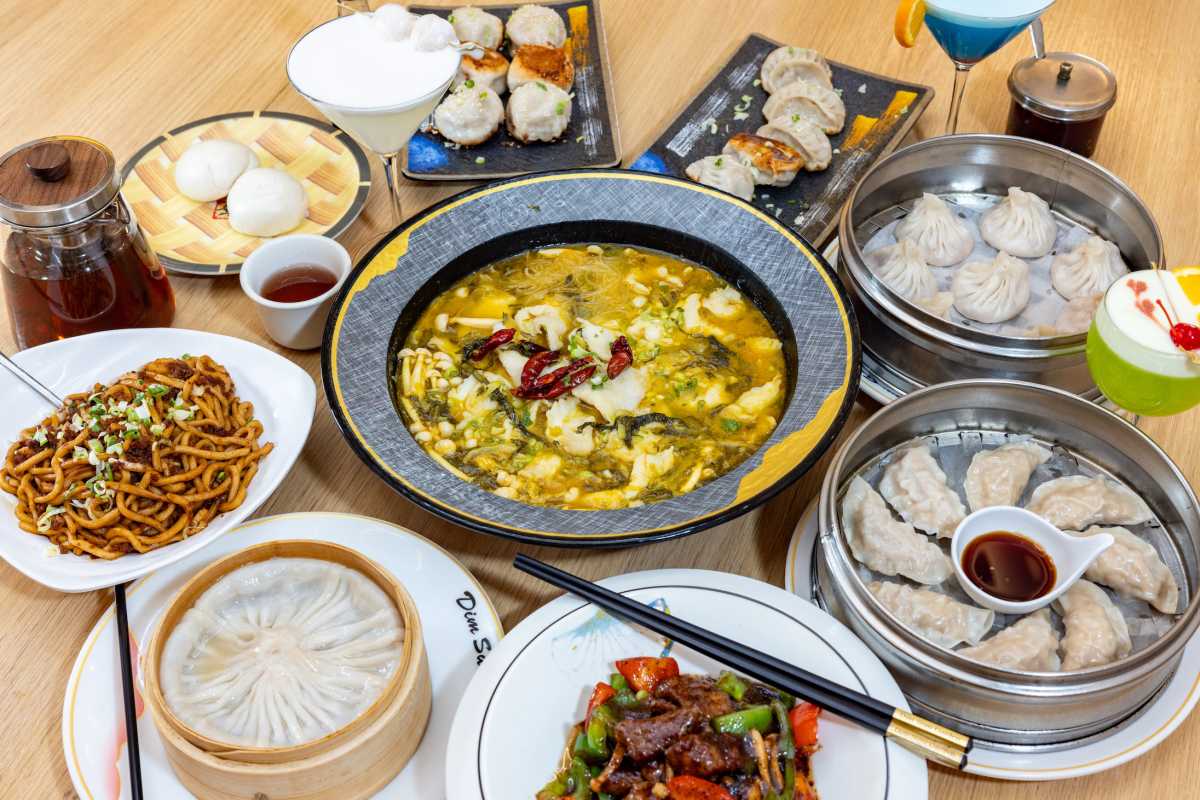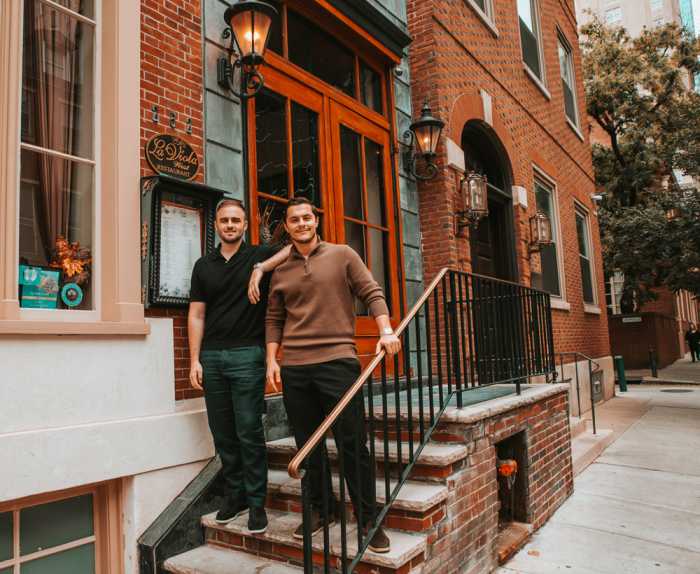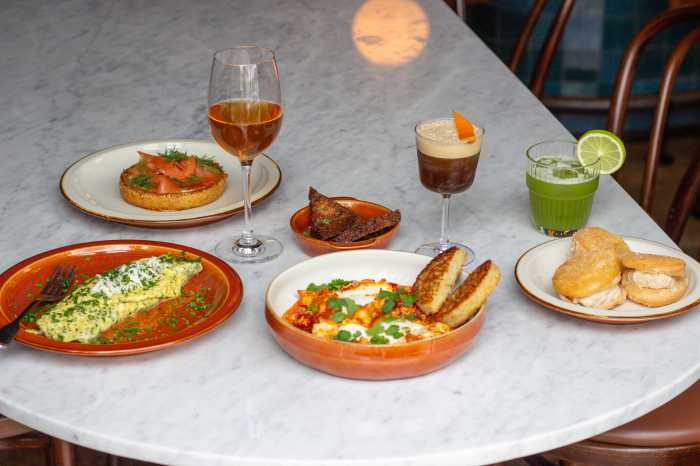For those freezing Philadelphians looking for some warmth this winter — Metro has the perfect place.
Dim Sum Garden reopened at its new location at 1024 Race Street this month, and the mother-daughter team from Shanghai — chefs Shizhou Da and Sally Song — are reminding diners that their cuisine is the ultimate comfort food.
The Race Street restaurant’s substantial homemade noodles and dumplings – especially Dim Sum Garden’s Shanghainese noodles, Xiao Long Bao soup dumplings and fried dumpling Siu Mai and Har Gow – are essentials of any dining experience: in this city, in every Chinatown across America, and every province in their one-time home in Shanghai.
“Dim sum is the ultimate comfort food because it is warm, flavorful, and meant to be shared,” says Chef Da, days after Dim Sum Garden’s reopening ceremony. “With bite-sized dishes like soup dumplings, pan-fried dumplings, noodles and such, the dim sum experience offers a perfect mix of heartiness and indulgence. At Dim Sum Garden, each dish is handmade with care, delivering rich, satisfying flavors that feel like a warm hug. So, whether it’s the steam rising from a fresh dumpling or the crispy bite of a pan-fried dumpling, our food brings comfort and joy.”
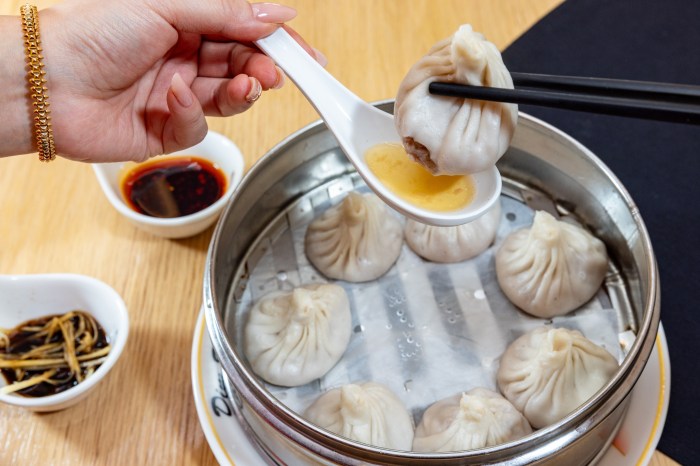
Shizhou Da, a fifth-generation chef who famously created the very first Xiao Long Bao in China, came to the United States in 2008 with her original recipe and 30-years-experience of making traditional homemade Shanghai style dim sum. Da came to Philly to be with her daughter, Sally Song, who at the time, was preparing a restaurant based on its family’s recipes at 59 N. 11th Street.
“When I was a child, my mother told me that women who know how to cook will be happy when they grow up,” said Song. “However, as I got older, I thought that knowing how to cook had nothing to do with happiness. Nonetheless, I developed a passion for cooking… My mother passed on to me all the traditional Chinese cooking skills she had learned. And now, I understand what my mother really meant. Your happiness lies in your own hands.”
The differences between Dim Sum Garden’s menu in Philadelphia, and how it was presented in Shanghai, are subtle.
Dim Sum Garden’s menu reflects a wide range of traditional Shanghainese dishes along with variations that appeal to a broader audience, especially in terms of spicier options like the spicy dumplings and Mapo tofu.
“I will give you some examples of the differences,” explains Da. “In Shanghai, soup dumplings are often seen as a delicacy, served in a simple, elegant manner with a focus on the balance of broth and filling. Classic variants include pork or crab fillings, served in smaller quantities and often accompanied by a dipping sauce made of ginger and vinegar.”
In Shanghai, soup dumplings are enjoyed at teahouses, breakfast stalls, and specialized dumpling shops, and reflect Shanghai’s emphasis on refined, delicate flavors and the importance of craftsmanship in food preparation.
Song notes that, in Philadelphia, she and her mother offer a broader range of dumplings, like spicy pork soup dumplings and chicken soup dumplings.
“This is more about variety, catering to local preferences, especially the inclusion of spicy versions and fusion-style preparations. Another example is noodles. Noodles in Shanghai tend to be simple, often paired with broth or stir-fried with mild seasonings, highlighting the fresh ingredients.
“In Philadelphia, we have a wide array of noodle dishes, including options like Mapo Tofu Noodle and Seafood Noodle, reflecting a more diverse approach with bold flavors that cater to different palates,” Song continues. “Those differences exist because of the culture preferences, our innovations and local fresh ingredients.”
In Philadelphia, Dim Sum Garden stands out because its soup dumplings are handmade, unlike other spots that use machines. That makes all the difference.
“Many customers from Shanghai and nearby regions say that our flavors remind them of home, a true testament to their authenticity,” says Da. “While other restaurants focus on mass production, we stay true to the art of handcrafted dumplings.”
One new addition to the Dim Sum Garden menu is a giant soup dumpling about the size and height of a small football. “Almost every table orders it—at first out of curiosity, and then they end up loving it after trying it,” says Song. “That giant soup dumpling has become an immediate hit, and for good reason. It’s a fun, unique twist on the traditional xiaolongbao, delivering the same rich, flavorful broth and tender filling—but on a much larger scale. Customers seem to love the experience of sipping the hot, savory soup through a straw before diving into the dumpling itself.”
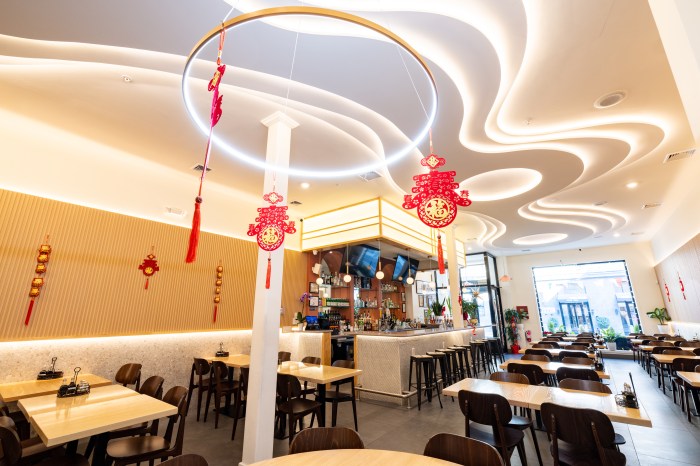
Considering that the new Dim Sum Garden is double the size of its previous address with 200 seats, additional levels of private dining space and two kitchens, the new location has been an incredible journey for the mother-daughter team.
“From my mother, I’ve learned the importance of tradition, patience, and craftsmanship,” says Song. “She has lifetime experience making handmade dumplings and noodles, and her dedication to authenticity is what makes Dim Sum Garden special. Watching her work reminds me that true quality comes from passion and attention to detail.”
Shizhou Da has learned from her daughter, the power of innovation and adaptability.
“Sally brings fresh ideas, a modern perspective, and a drive to push Dim Sum Garden forward, whether it’s improving efficiency, engaging with customers in new ways, or expanding our reach. She helps ensure that while we honor tradition, we also evolve and grow.”



